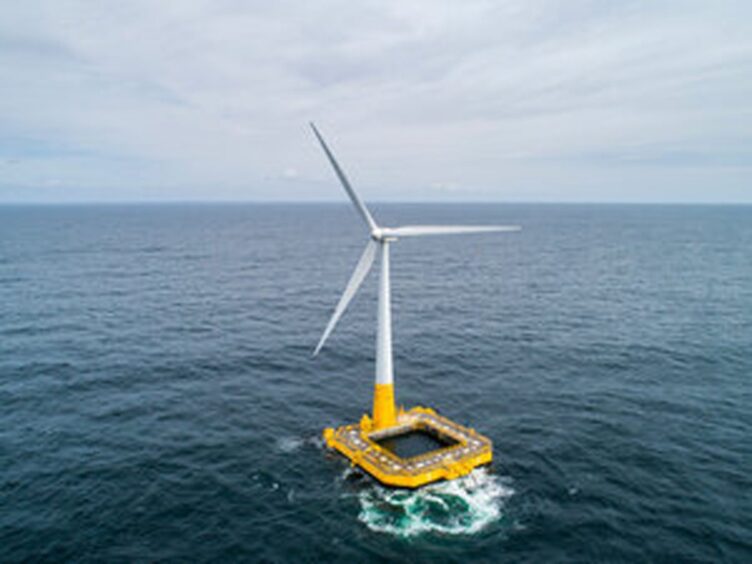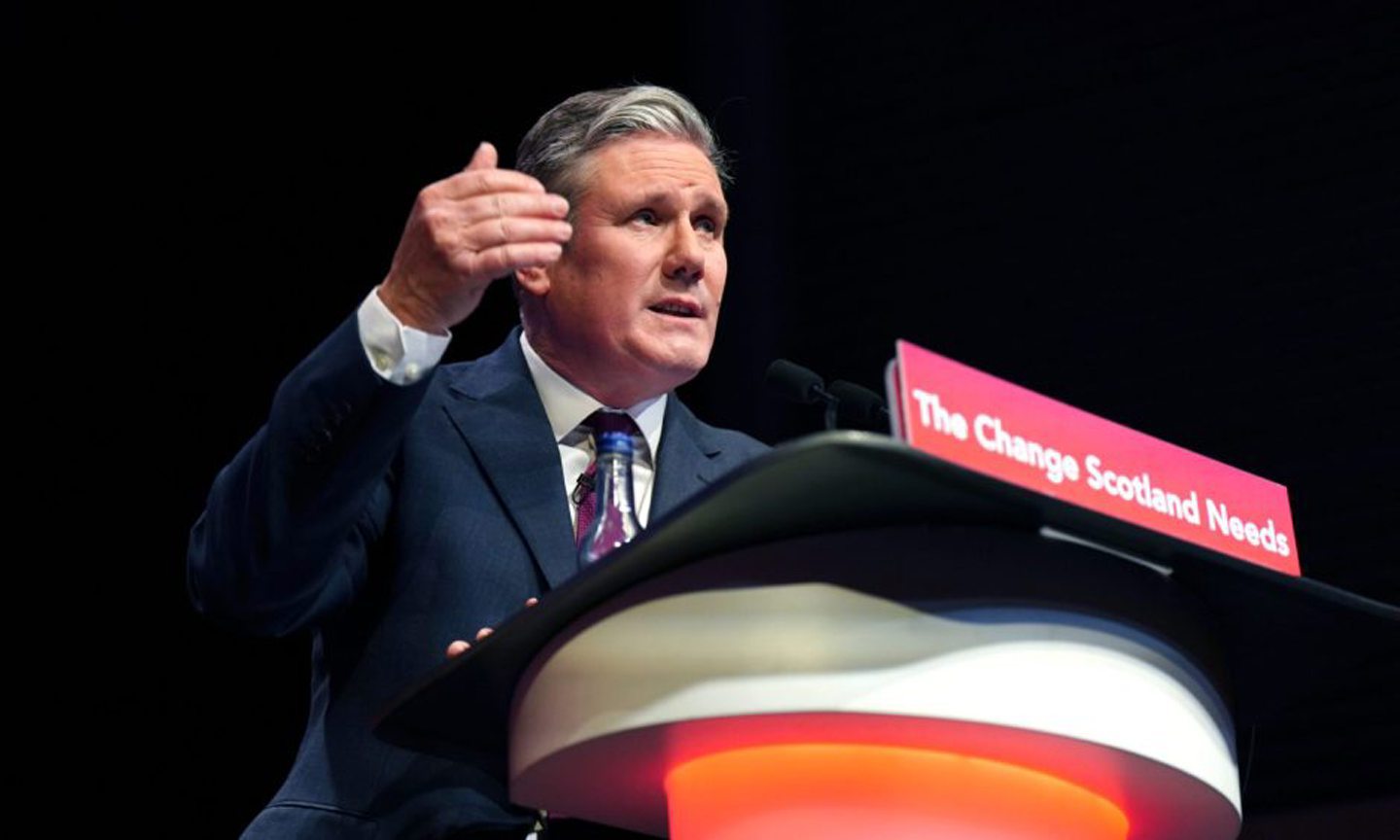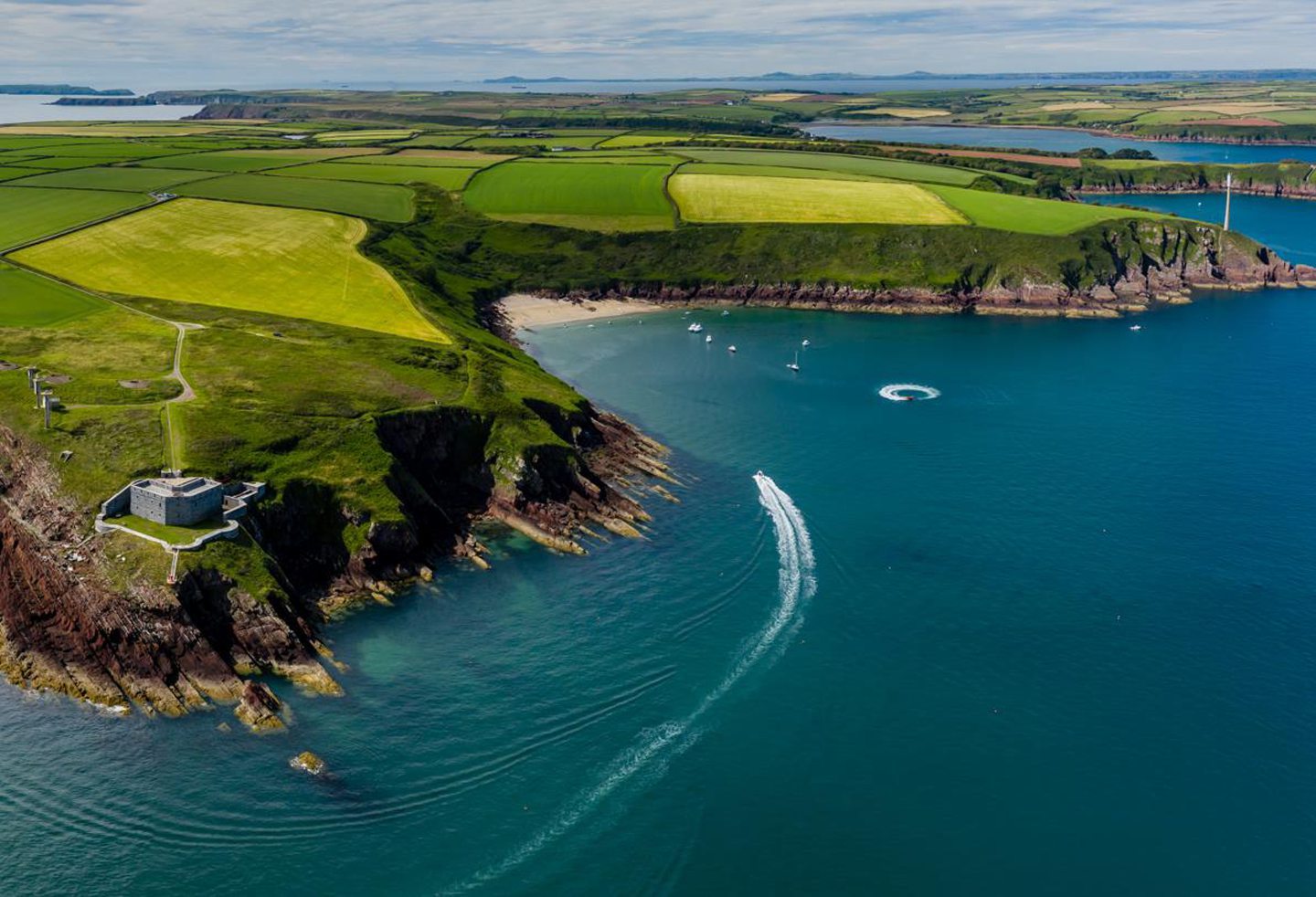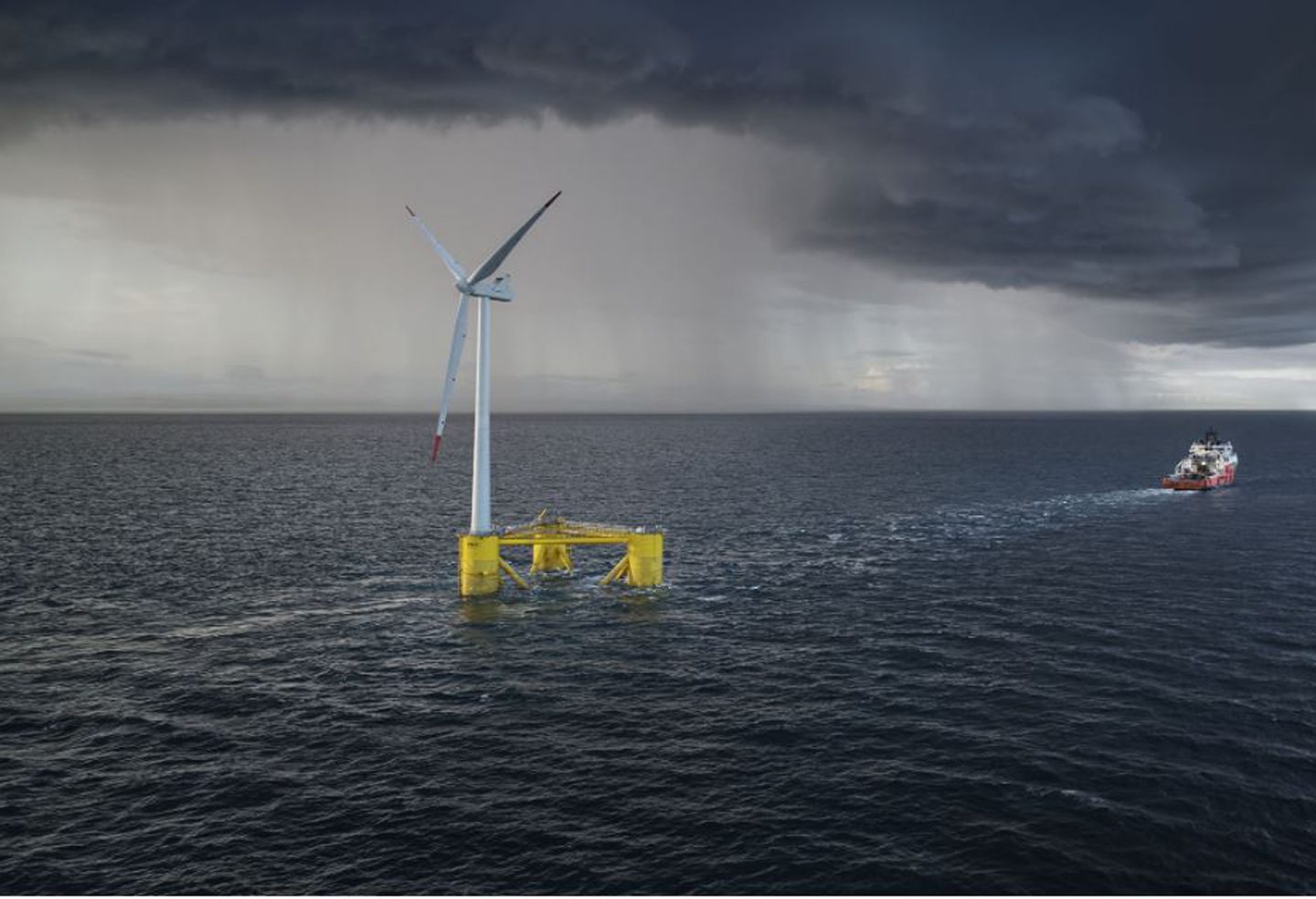
UK Labour leader Sir Keir Starmer has announced plans for a publicly owned clean energy company to invest in floating offshore wind during a visit to Wales today.
Sir Keir joined Welsh First Minister Vaughan Gething to give more detail on Labour’s ‘Great British Energy’ plans, which the party first announced last year.
He said floating wind will be the “priority” for the publicly-owned company’s first investment, with GB Energy underpinned by an initial £8.3bn should Labour come to power.
Meanwhile, the ruling Conservative party has raised questions about how Labour would fund the project, pointing to the prospect of higher taxes.
Ahead of the visit to the Port of Milford Haven, Sir Keir said Britain “must take back control” of its national energy security.
He also pledged to “turbocharge jobs and growth” in Wales with public investment in GB Energy, which could “unlock billions more in private investment”.
“After 14 years of a Tory Government kowtowing to fossil fuel dictators, Labour’s plan for energy independence would get Putin’s boot off our throat and power up communities across Britain,” Sir Keir said.
Sir Keir said the current Conservative government is “squandering” the “enormous” potential for offshore wind in Wales.
“Great British Energy will be built to last, and the wind farms, carbon capture and all the good jobs that go with it will be built to last, too,” he said.
Green jobs revolution for Wales
Prior to the visit, Mr Gething said with new ambition “Wales can take its place at the frontier of a green jobs revolution”.
“From groundbreaking tidal energy investment to the birth of Wales’ publicly owned energy company – Ynni Cymru – our Welsh Labour Government is building that future here in north Wales,” he said.
“The missing ingredient is a UK Government with the will to back Wales’ economic potential.”
Labour recently dropped a pledge to spend £28bn a year on environmental projects it it wins power.
In response, UK energy secretary Claire Coutinho told ITV that only the Conservatives will “deliver long-term energy security”.
“Sir Keir Starmer can’t say what he will do to protect our energy security because he does not have a plan – he set out a 2030 decarbonisation promise, which Labour themselves costed at £28 billion without a plan to pay for it,” Ms Coutinho said.
“Not only does he not have a plan of his own, but he also voted against our North Sea Oil and Gas Bill, which will protect over 200,000 jobs and maximise our energy security.”
Russell Borthwick, CEO of Aberdeen and Grampian Chamber of Commerce, said: “While we welcome the scale of Labour’s ambition on offshore wind if they are to form the next UK government — including the commitment to GB Energy which should be based in Aberdeen — it’s important to recognise the world class expertise and supply chain that already exists here in the North East of Scotland.
“While we are ramping up efforts on renewables, we will also rely on oil and gas for decades to come. It makes no sense to wind down the North Sea prematurely in that context — a point we have made and will continue to stress to all parties ahead of a General Election.
Manufacturing opportunity for floating wind
Labour’s plans for GB Energy to invest in floating wind received a positive reception from the renewables sector.
RenewableUK executive director of offshore wind Jane Cooper welcomed Labour’s commitment to floating wind and recognition of the “huge economic opportunity” offered by the technology.
“The UK is a world leader in offshore wind, and you can travel to parts of Wales like Mostyn where people are already employed in roles maintaining the North Hoyle, Rhyl Flats and Gwynt-y-Mor wind farms,” Ms Cooper said.
“However, the development of floating wind at scale offers opportunities for us to build a far greater number of offshore wind farms in deeper, windier waters in the Celtic Sea, off the coast of South Wales and the south west of England, providing vast amounts of home-blown clean power.”
Ms Cooper called for investment to develop ports like Talbot and Milford Haven to house new manufacturing and assembly facilities for wind turbines.
In addition, Ms Cooper also called for an increase to the budget of this year’s Allocation Round 6 auction to unlock investment in floating offshore wind projects.
“There is currently a huge decision on the desk of Government when it comes to floating offshore wind,” she said.
“The UK could unlock investment in the Erebus wind farm this year, a world-leading project off the coast of Pembrokeshire, in addition to two other projects off the coasts of Scotland the north east of England, through its upcoming clean power auction this summer.
“However, the budget set out for that auction is too low, putting progress at risk, so we’re calling on Government to revise this at the earliest opportunity.”
Great British Energy
The Labour party has previously said it plans for GB Energy to be based in Scotland.
The taxpayer-owned energy company would focus on building jobs and supply chains to capitalise on the growth in renewables.
Together with a National Wealth Fund, GB Energy would invest alongside the private sector in gigafactories, clean steel plants, renewable-ready ports, green hydrogen and energy storage.
During a visit to Aberdeen last year, Labour shadow energy secretary Ed Miliband said Aberdeen has a “strong claim” to hosting the headquarters of GB Energy.
At the time, Labour’s GB Energy plans were met with scepticism from SNP Westminster leader Stephen Flynn.
“Its taken more than three years but Sir Keir Starmer has finally travelled north in order to assess Aberdeen’s riches – our energy, our workforce and our potential,” Mr Flynn said.
“The big question he has repeatedly failed to answer is why we should continue to trust Westminster with Scotland’s energy wealth when we all know they’ve squandered it in comparison to the likes of our Norwegian neighbours.”
Meanwhile, Scottish Tory energy spokesman Douglas Lumsden said: “Keir Starmer’s pitiful attempt at finally showing face in the North East is too little too late.
“His energy plan – including GB Energy – lacks any credibility and is a feeble attempt to pull the wool over the eyes of workers whose jobs he wants to throw under a bus.”

 © Supplied by -
© Supplied by - © Supplied by Shutterstock
© Supplied by Shutterstock © Supplied by Blue Gem Group
© Supplied by Blue Gem Group © Supplied by PA
© Supplied by PA